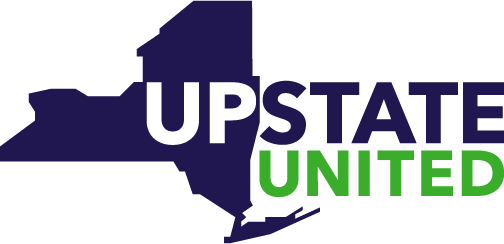New York Health Act Testimony OCT 10, 2019 | 2019
October 10th, 2019
Testimony Provided by Michael Kracker to the New York State Senate and Assembly Health Committee on the Proposed New York Health Act October 10, 2019
Chairman Rivera, Chairman Gottfried and the members of the panel,
I would like to thank you for providing the opportunity for myself and others to testify today on this important issue. I am the executive director of Unshackle Upstate, a non-partisan, pro-taxpayer, pro-economic growth, education and advocacy coalition made up of business and trade organizations from all parts of Upstate New York. As an organization, our focus is to advocate for Upstate businesses and taxpayers, pushing for reforms in Albany that will make Upstate New York a better place to live and a stronger place to do business.
I am here today to raise concerns about the proposed New York Health Act and its impact on an already struggling Upstate economy. New York already faces serious economic challenges. The non-partisan Tax Foundation ranked New York the second worst business tax climate in the nation. This has contributed significantly to our outmigration and jobs crises in many Upstate communities. The independent analysis conducted by the RAND Corporation showed that New York will impose $210 Billion in new taxes when single payer is fully implemented. When you add in the cost of long-term care that jumps to $250 Billion. The seven-county Rochester region will face $13.8 billion in new taxes. This unprecedented tax hike will be devastating for Upstate employers, including small business owners who are already struggling to survive in New York’s hostile business climate.
While this staggering new tax burden is portrayed as simply moving costs from one bucket to another, for many employers – especially small employers – this is simply not true. Right now, 94% of Upstate firms have less than 50 employees. These small businesses account for 26% of all Upstate employees. Small businesses are not required to provide health insurance – and since most are struggling to survive under New York’s already heavy tax burden – they can’t afford to. In fact, only 34.5% of small employers provide health insurance. For the remaining 65.5%, this will be a brand-new expense totaling about $1 billion for the Rochester Region – not an offset of current costs.
This legislation will also result in unprecedented job losses. According to a report from Gerald Friedman, the New York Health Act will displace more than 150,000 workers. In this area, 4,000 insurance jobs would be eliminated immediately and 76,936 jobs would be at risk. Here in Upstate, which still has not recovered the jobs lost during the Great Recession, this would have a truly devastating impact. Put simply, Upstate New York businesses and taxpayers cannot afford this proposal.
According to New York’s Budget Director, we are facing a $4 billion State Budget deficit – about half in Medicaid. Any time the State faces budget shortfalls, there are cuts to healthcare providers. What will happen when we inevitably face shortfalls in the New York Health Plan? Will they impose cuts or just raise taxes? In Canada and other countries with Single Payer systems, they impose cost containment measures. As a result, they experience long wait times for services – like 32 week delays in getting a hip or knee replacement. Approximately 96.5% of Upstate New Yorkers already have health coverage. Of the few remaining uninsured, 45% are already eligible for Medicaid or the Essential Health Plan. Here in Monroe County half of the uninsured are currently eligible. Why would we force everyone to give up their current coverage and compel them to use government healthcare that is subject to the uncertainty of a State Budget process? Instead we should find ways to get everyone who is eligible enrolled and ways to cover the small percentage of people who aren’t. We’ve started to hear about “under-insurance.” Since New York mandates that all plans include the Affordable Care Act Essential Health Benefits – a robust set of benefits including preventative care, chronic care management, emergency services, hospitalization, prescription drugs and more – this issue seems to be based on inaccurate anecdotes instead of reality.
Lastly is the issue of cost. We take steps to address the affordability issue across the State. But the problem isn’t universal. Rochester actually enjoys the third lowest health insurance costs in the Nation. Unshackle Upstate opposes this single-payer approach and instead encourages our leaders to engage with stakeholders to find responsible ways to reduce healthcare costs, and affordably expand coverage to all New Yorkers. Again, thank you to the Chairs and members of this panel for this opportunity.
